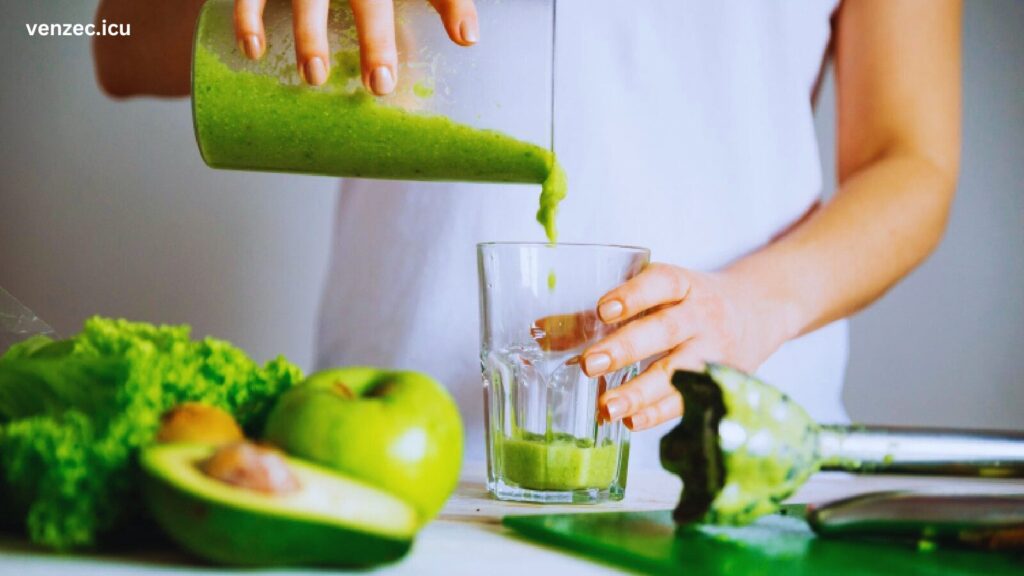Detox diets have gained immense popularity in recent years, with countless people flocking to different forms of detox programs, promising to cleanse the body and boost overall health. From juice cleanses to restrictive meal plans, detox diets are everywhere, and so are the opinions surrounding them. But the real question is: Do detox diets really work? In this article, we’ll explore the science behind detox diets, their potential benefits, risks, and how to approach detoxification in a safe and sustainable way.
What Are Detox Diets?
Detox diets are usually short-term eating plans designed to eliminate toxins from the body and promote health and weight loss. The primary idea behind detoxing is that you’re “cleaning” your system, removing accumulated waste and harmful substances that have built up in your body from unhealthy food, environmental toxins, and other factors.
Many detox diets focus on eliminating processed foods, caffeine, alcohol, and sugar. In place of these, people are often advised to consume whole foods such as fruits, vegetables, and high-fiber grains. Detox diets may also include products such as teas, juices, or supplements.
Popular Types of Detox Diets
- Juice Cleanse: Involves drinking only fresh vegetable and fruit juices for several days.
- Water Fasting: Abstaining from all food and consuming only water for a short period.
- Whole Food Detox: Focuses on eating whole, unprocessed foods and eliminating toxins from the body.
- Colon Cleanses: These aim to remove waste and toxins from the colon using supplements or enemas.
- Liver Detox Diets: These promote specific foods and supplements to support liver function.
Do Detox Diets Really Work?
The Science Behind Detoxification
Detox diets claim to help cleanse the body of toxins, but do they live up to this promise? The human body is designed to detoxify itself. Organs like the liver, kidneys, and intestines naturally work to process and remove toxins. In fact, the liver is the body’s primary detoxifying organ, breaking down toxins and converting them into waste products that are excreted through the kidneys, sweat, and digestive system.
While the body does detox naturally, the idea behind detox diets is to “speed up” this process or give the organs extra support by eliminating foods and substances that may be taxing on the liver, kidneys, and digestive system.
The Role of Diet in Detoxing
Although our bodies do detox naturally, adopting a clean, healthy diet can certainly support the body’s natural detoxification processes. For example:
- Fiber-Rich Foods: Foods such as fruits, vegetables, legumes, and whole grains help support digestion and can promote the elimination of toxins through the digestive system.
- Antioxidants: Fruits and vegetables, particularly leafy greens and berries, are rich in antioxidants that help combat oxidative stress, which is a byproduct of toxin exposure.
- Water: Staying hydrated is key for flushing toxins out of the body, and drinking plenty of water can aid in the detox process.
However, most detox diets are restrictive and don’t provide long-term sustainable results. While they may provide short-term weight loss or a sense of feeling “lighter,” they may not be the best way to address long-term health issues or cleanse your body.
The Potential Benefits of Detox Diets

Despite the lack of strong scientific evidence proving that detox diets work in the way that many proponents claim, some benefits are associated with these diets, especially when done mindfully.
1. Short-Term Weight Loss
Many people experience a quick reduction in weight when following a detox diet. This is often due to the elimination of water weight, processed foods, and high-sodium foods, which can make you feel less bloated. However, this weight loss is typically temporary and may not result in lasting changes unless paired with long-term healthy habits.
2. Increased Energy and Focus
Some people report feeling more energetic and focused after following a detox program. This could be attributed to a reduction in refined sugars, caffeine, or processed foods, all of which can cause energy crashes when consumed in excess. By eating whole, nutrient-dense foods, you may feel more energized.
3. Improved Digestion
A detox diet that includes fiber-rich foods like vegetables and fruits can support a healthy digestive system. This may help alleviate bloating, constipation, and indigestion.
4. Better Skin Health
Eliminating processed foods and focusing on nutrient-dense foods may help improve skin health. Toxins, unhealthy fats, and sugars can contribute to skin problems such as acne, and detox diets that eliminate these elements may improve skin appearance over time.
The Risks of Detox Diets
While detox diets may offer temporary benefits, there are several risks and potential drawbacks that should be considered before starting a detox program.
1. Nutrient Deficiency
Many detox diets involve strict food limitations, which can lead to nutrient deficiencies. For example, juice cleanses and water fasts can cause a lack of essential vitamins, minerals, and proteins that your body needs for optimal health.
2. Metabolism Slowdown
Extremely restrictive detox diets may lead to a slowdown in metabolism. When your body isn’t getting enough calories or nutrients, it enters a state of conservation, which can reduce your energy expenditure and make it harder to maintain weight loss in the long term.
3. Disruption of Gut Health
Some detox diets involve fasting or consuming liquids only, which can disrupt the balance of healthy gut bacteria. Prolonged restriction can also impair digestion and overall gut function.
4. Detox Symptoms (Herxheimer Reaction)
When people undergo detoxification, they may experience symptoms like headaches, fatigue, dizziness, or irritability. These symptoms can occur as the body releases toxins into the bloodstream faster than it can process them, a phenomenon known as the “Herxheimer reaction.”
5. Risk of Eating Disorders
Extremely restrictive diets or drastic weight loss methods, like juice cleanses or extreme fasting, can sometimes lead to unhealthy relationships with food, increasing the risk of disordered eating behaviors.
Are Detox Diets Necessary?
As mentioned, your body already has natural detox systems in place. Instead of engaging in restrictive detox programs, there are safer and more sustainable methods to support your body’s natural detoxification processes:
- Focus on Whole, Plant-Based Foods: Eat a variety of whole foods, including vegetables, fruits, whole grains, and legumes to support digestion and promote the elimination of toxins.
- Stay Hydrated: Drinking plenty of water is essential for flushing out toxins through urine, sweat, and breath.
- Exercise Regularly: Physical activity helps increase circulation and promotes the removal of toxins through sweat.
- Prioritize Gut Health: Include probiotics and prebiotic foods (such as fermented foods) in your diet to promote healthy gut bacteria and optimal digestion.
- Reduce Processed Foods: Minimize your intake of refined sugars, alcohol, caffeine, and processed foods, which can place a strain on your body’s detoxifying organs.
How to Detox Safely
If you’re considering a detox diet, here are some tips to do so safely:
- Avoid extreme restriction: Instead of going on a juice cleanse or water fast, aim for a balanced approach with plenty of nutrient-rich foods.
- Consult a healthcare provider: Before starting any detox program, especially if you have pre-existing health conditions, consult a doctor or nutritionist for personalized advice.
- Listen to your body: If you experience negative symptoms, like fatigue or dizziness, stop the detox and reassess your approach.
- Focus on sustainability: Aim to adopt long-term healthy habits rather than quick fixes that may not provide lasting results.
Conclusion: The Verdict on Detox Diets
The truth about detox diets is that they may offer temporary benefits, such as short-term weight loss and a boost in energy, but they are not a magic bullet for long-term health or toxin removal. The body’s natural detoxification systems, when supported by a balanced diet, hydration, and regular exercise, are sufficient to cleanse the body.
Rather than jumping into restrictive detox programs, it’s better to focus on long-term, sustainable lifestyle changes that support your body’s detox processes naturally. Incorporating whole, nutrient-dense foods, drinking plenty of water, and taking care of your gut health will lead to better results and improved well-being over time.
Ultimately, detox diets are not a necessity, but a balanced, healthy lifestyle is the key to long-term health and wellness.
Feel free to visit our website Venzec for more insights on how to live a healthier life through mindful eating and sustainable habits.










Leave a Reply